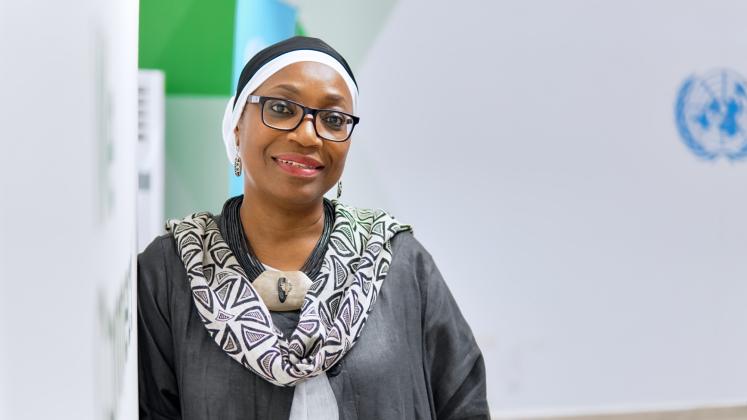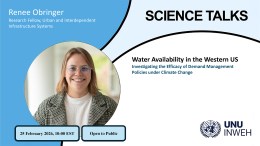On 9 April 2024, UNU will host “Can an AFTER Carbon Mindset Enable Africa's Readiness Towards a Carbon Resilient Economy?”, a BIG IDEAS Dialogue with Dr. Fatima Denton, Director of UNU-INRA. This online event will be held via Zoom webinar at 18:00 JST (UTC+9).
The transition to a post-carbon economy offers Africa a unique opportunity to redefine its position on the world stage — leapfrogging other nations and leading the development of critical climate solutions tailored to the needs of each country.
But, currently, Africa is underprepared for such a transition. Policymakers in most African countries are consumed with boosting local economies to better support their citizens. With many countries dealing with economic downturn and increased debt following the COVID-19 pandemic, governments often lack time, space, resources and available skills needed to develop approaches that will future-proof their country in a post-carbon future.
There is also a clear disconnect between science and policy. With limited resources for data collection, analysis and storage — and financial investment for research institutions lagging behind demand — the short and long-term research needed to influence national policies on the transition has been left behind.
Dr. Denton will join UNU Senior Vice-Rector Sawako Shirahase to discuss the African Facility for Transitions Research (AFTER Carbon) — a research to policy hub bringing together scientists, entrepreneurs, policymakers and civil society groups within a transdisciplinary research programme centred around solving the key policy problems limiting transitions to low-carbon development. The discussion will explore how AFTER Carbon will be able to reconfigure, recalibrate and localize the pillars of a post-carbon future for the African continent by reframing the narrative to situate ‘net zero’ and give it a development focus.
Please note this event will be in English; Japanese interpretation will not be provided. Advance registration by 8 April is required. Registrants will receive an email on the day of the event with a link to attend via Zoom webinar.
About the speaker
Dr. Fatima Denton is the Director of the United Nations University Institute for Natural Resources in Africa (UNU-INRA). She is an accomplished senior leader in the UN system, respected across the research and implementation branches of the organization. She has depth of expertise in natural resource management, as well as deep knowledge of research and policy development, and the African region.
Prior to joining UNU-INRA, Dr. Denton had worked with the United Nations Economic Commission for Africa (UNECA) in Ethiopia since 2012. Her roles included Director of the Natural Resource Management Division and Coordinator of the African Climate Policy Centre.
Before that, Dr. Denton was a programme leader with the Canada-based International Development Research Centre (IDRC), where she managed high-impact action research, including a major climate change adaptation research programme involving over 100 action research initiatives encompassing 40-plus projects across 33 countries in Africa. She also worked as an energy scientist with the United Nations Environment Programme Risoe Centre (Denmark) and as an energy programme manager with Enda Tiers Monde (Senegal).
Dr. Denton is a lead author for the IPCC special report on climate change and land, a lead author for the Intergovernmental Panel on Climate Change (IPCC) Sixth Assessment Report (Working Group III), and was a lead author for the Fourth and Fifth Assessment Reports (Working Group II) and for the IPCC Special Report on Renewable Energy and Climate Change Mitigation. She has served on numerous scientific committees and boards, including the Independent Scientific Committee of the CIGIAR Climate Change and Food Security Programme, and is a current member of the advisory board of Future Earth and a trustee of UK-based International Institute on Environment and Development (IIED).
Dr. Denton has written more than 50 peer-reviewed articles, report and books. She holds a PhD in Political Science from the University of Birmingham (UK).






